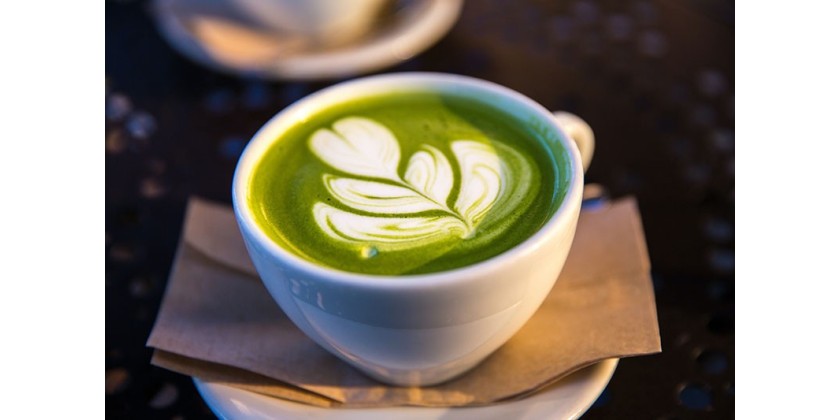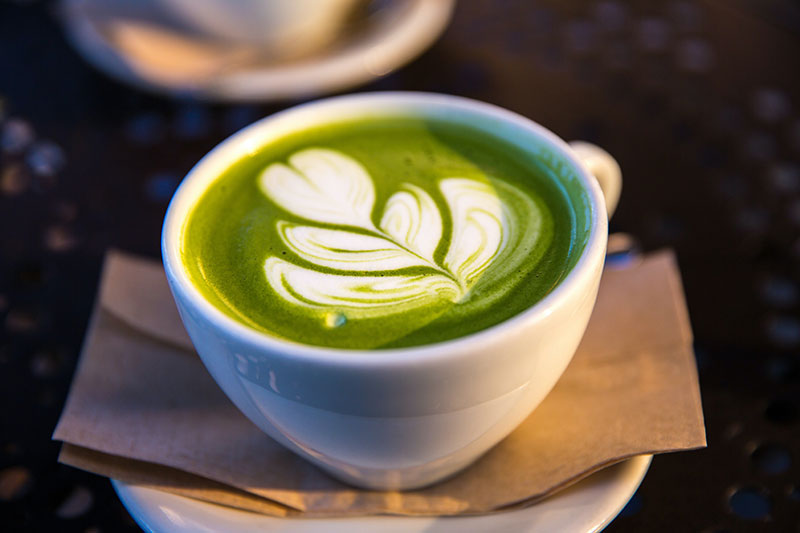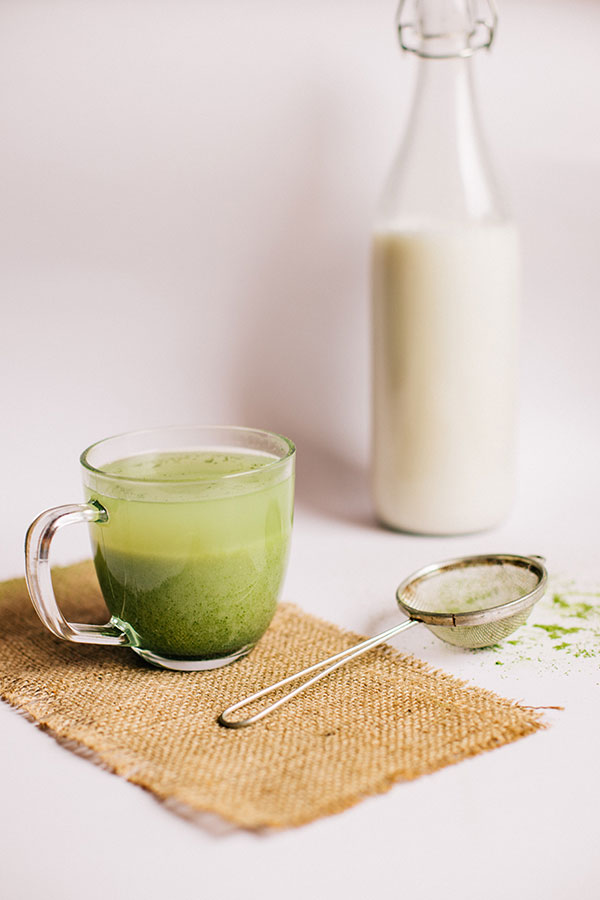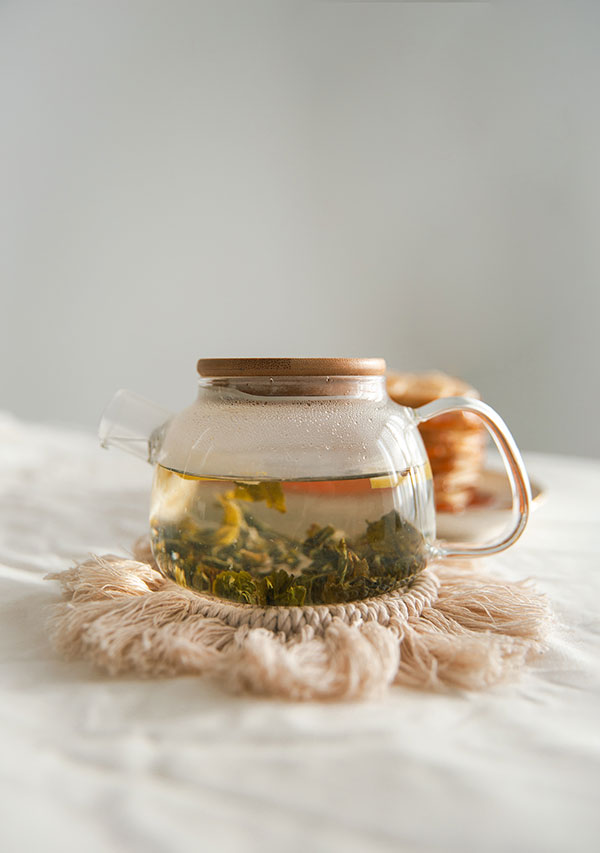
Green tea may never taste like coffee, but that doesn’t mean it can’t be a great alternative. Tea contains energy boosting compounds that may offer many potential benefits, and when brewed properly, it will taste absolutely delicious.
Here’s what you need to know when replacing coffee with green tea.
Should you try replacing coffee with green tea?
There are dozens of reasons you may want to switch to green tea from coffee.
First, there are the potential health benefits.
While there’s a lot of research on how coffee may be good for you, there’s even more on the potential benefits of drinking green tea.
Green tea is one of the healthiest drinks in the world. It’s abundant in catechins and amino acids that may help boost immunity and metabolism. Also, green tea won’t give you the jitters and there’s much less danger of overdosing on tea than on coffee.
The world of tea is developing much faster than the world of coffee. While there are hundreds of amazing types of coffee out there, there are even more types of green tea. Each tea producing country will have its own special tea types with recognizable flavor profile. Plus, green tea is much easier to blend with other ingredients which offer an opportunity to create even more interesting flavors.
If you are thinking of replacing coffee with green tea, the following tips will help you enjoy the best flavors and the best benefits while satisfying your coffee taste buds with strong and delicious flavors packed with nutrients and caffeine.

7 tips for replacing coffee with green tea
1. Add more tea leaves to make it stronger
One thing ex coffee drinkers may miss when drinking green tea is that strong and intense flavor and high caffeine content. However, a cup of green tea can be as strong.
If you want to enjoy a really strong cup of morning tea, don’t over-brew it. While it’s true that the longer you steep it, it will release more caffeine, the flavor will be ruined completely. The same goes for the water temperature. If you want to enjoy a really strong and tasty cup of green tea, use more tea leaves and follow the recommended brewing suggestions.
Find out how to make the best cup of organic green tea.
2. You can add milk too – to the right type of tea
If you just love that morning latte and find it difficult to switch to pure green tea, don’t be discouraged. You can actually add milk to some types of green tea. Choose teas with stronger, nuttier or smoky flavor and deeper yellow color rather than grassy green teas.
Which teas go well with milk? Chinese gunpowder and chun mei teas are only some types that will taste great, both with or without milk.
To make it even more delicious, you can add a few drops of vanilla or white chocolate flavoring too.
3. Some type will have more caffeine than the others
Some types of green tea and tea blends are naturally higher in caffeine. It’s a common belief that green tea has less caffeine than black tea. However, that’s not always correct.
If caffeine is what you are looking for (plus the benefits), choose:
- Pure teas or green tea blends that don’t contain any other ingredients. A teaspoon of flavored blend with 5 ingredients will contain less tea leaves than a teaspoon of pure tea
- Teas made from younger leaves and buds, instead of teas mate from mature or roasted leaves – spring sencha will have more caffeine than roasted bancha or kukicha
Read more about caffeine in different tea types.
4. Go matcha
Perhaps the easiest way to satisfy your need for caffeine is to choose matcha. Although not all matcha teas have the same caffeine content, you can expect approximately 20-30 grams of caffeine per gram of tea powder. Besides, the final caffeine content in matcha won’t depend on brewing technique as there’s no steeping involved. Matcha is super delicious with milk, so it’s a perfect alternative for that morning latte.
Read more - Is matcha stronger than coffee?

5. Don’t cold-brew
Cold brewing is amazing, especially for summer and if you want to enjoy tea all day long. However, brewing tea in cold water will release less caffeine than hot brewing [1]. If you want to enjoy a strong cup of tea, always use hot water. Bring it to a boil and let it cool down to 167-176°F. Then steep the tea leaves for 2-3 minutes.
6. Add an extra caffeine dose with guarana
Guarana seeds are seeds from Paullinia cupana plant native to Amazonia that may provide a stimulant effect [2]. These seeds are often available in a powdered form, and as a supplement. You can add guarana powder and seeds to green tea to increase the caffeine content and add additional benefits.
7. Be in it for the long haul
Tea may not provide the same immediate energy boost as coffee, but you will feel its benefits longer.
Once you drink green tea regularly, your overall energy levels are likely to go up. This means fewer feelings of sluggishness in the early afternoon and feeling more refreshed after waking up. It may actually reduce the need to consume large amounts of caffeine at once. Besides, long-term tea drinking may provide many other potential benefits, such as reduced risk of heart diseases and diabetes [3] and improved fat oxidation [4].

Final thoughts on replacing coffee with green tea
While tea may not taste the same as coffee, it’s more than a worthy alternative. Tea may offer more benefits than coffee, including the much-needed energy boost in the mornings or afternoons. To make sure you will stick with your new habit, choose teas that you truly enjoy drinking and that are strong enough to give you a similar experience. And most importantly, choose the right tea ware to make brewing as easy as possible.
Have you already switched from coffee to green tea? We would love to hear your experiences!
Sources:
[2] https://www.ncbi.nlm.nih.gov/pmc/articles/PMC4399916/
[3] https://www.hsph.harvard.edu/nutritionsource/food-features/tea/



Leave a Reply Cancel Reply